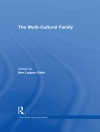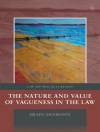This is the first ever collected volume on John Austin, whose role in the founding of analytical jurisprudence is unquestionable. After 150 years, time has come to assess his legacy. The book fills a void in existing literature, by letting top scholars with diverse outlooks flesh out and discuss Austin’s legacy today. A nuanced, vibrant, and richly diverse picture of both his legal and ethical theories emerges, making a case for a renewal of interest in his work. The book applies multiple perspectives, reflecting Austin’s various interests – stretching from moral theory to theory of law and state, from Roman Law to Constitutional Law – and it offers a comparative outlook on Austin and his legacy in the light of the contemporary debate and major movements within legal theory. It sheds new light on some central issues of practical reasoning: the relation between law and morals, the nature of legal systems, the function of effectiveness, the value-free character of legal theory, the connection between normative and factual inquiries in the law, the role of power, the character of obedience and the notion of duty.
Spis treści
Preface; Michael Freeman and Patricia Mindus.- Chapter 1 John Austin and Constructing Theories of law; Brian H. Bix.- Chapter 2 Austin’s Methodology? His Bequest to Jurisprudence; Andrew Halpin.- Chapter 3 'Darkening the Fair Face of Roman Law’: Austin and Roman Law; Andrew Lewis.- Chapter 4 Austin, Kelsen and the Model of Sovereignty: Notes on the History of Modern Legal Positivism;Lars Vinx.- Chapter 5 Austin and Scandinavian Realism; Patricia Mindus.- Chapter 6 Sense and Nonsense about Austin’s Jurisprudence from a Scandinavian Perspective; Jes Bjarup.- Chapter 7 Did Austin Remain an Austinian?; Wilfrid E. Rumble.- Chapter 8 Austin and the Electors; Pavlos Eleftheriadis.- Chapter 9 Positive Divine Law in Austin; James Bernard Murphy.- Chapter 10 What Is in a Habit?; Michael Rodney.- Chapter 11 Austin, Hobbes, and Dicey; David Dyzenhaus.- Chapter 12 John Stuart Mill on John Austin (and Jeremy Bentham); Philip Schofield.- Chapter 13 Austin and the Germans; Michael Lobban.- Chapter 14 Positivism before Hart; Frederick Schauer.- Chapter 15 Reconstructing Austin’s Intuitions: Positive Morality and Law; Maria Isabel Turégano Mansilla.- About the authors.












